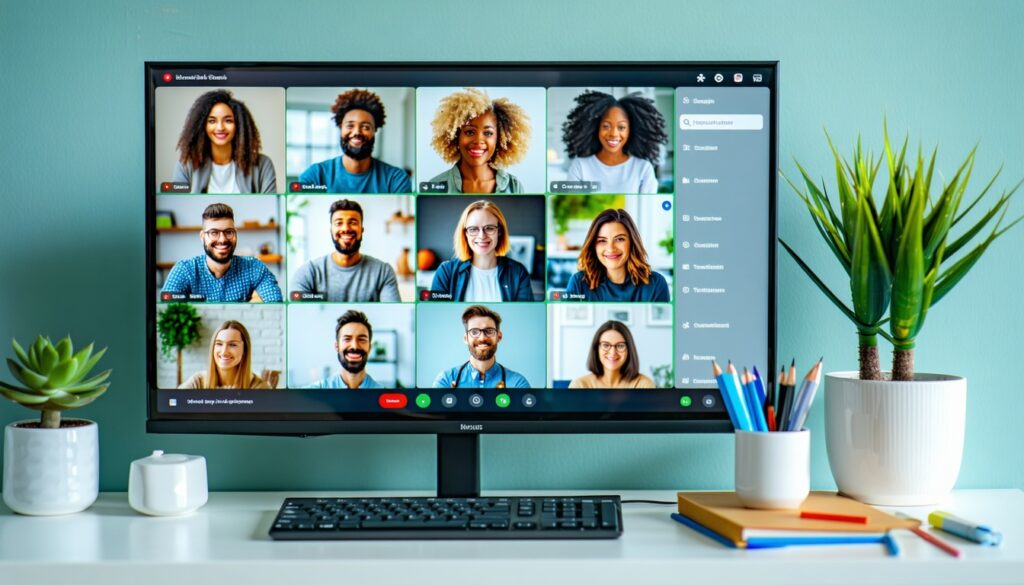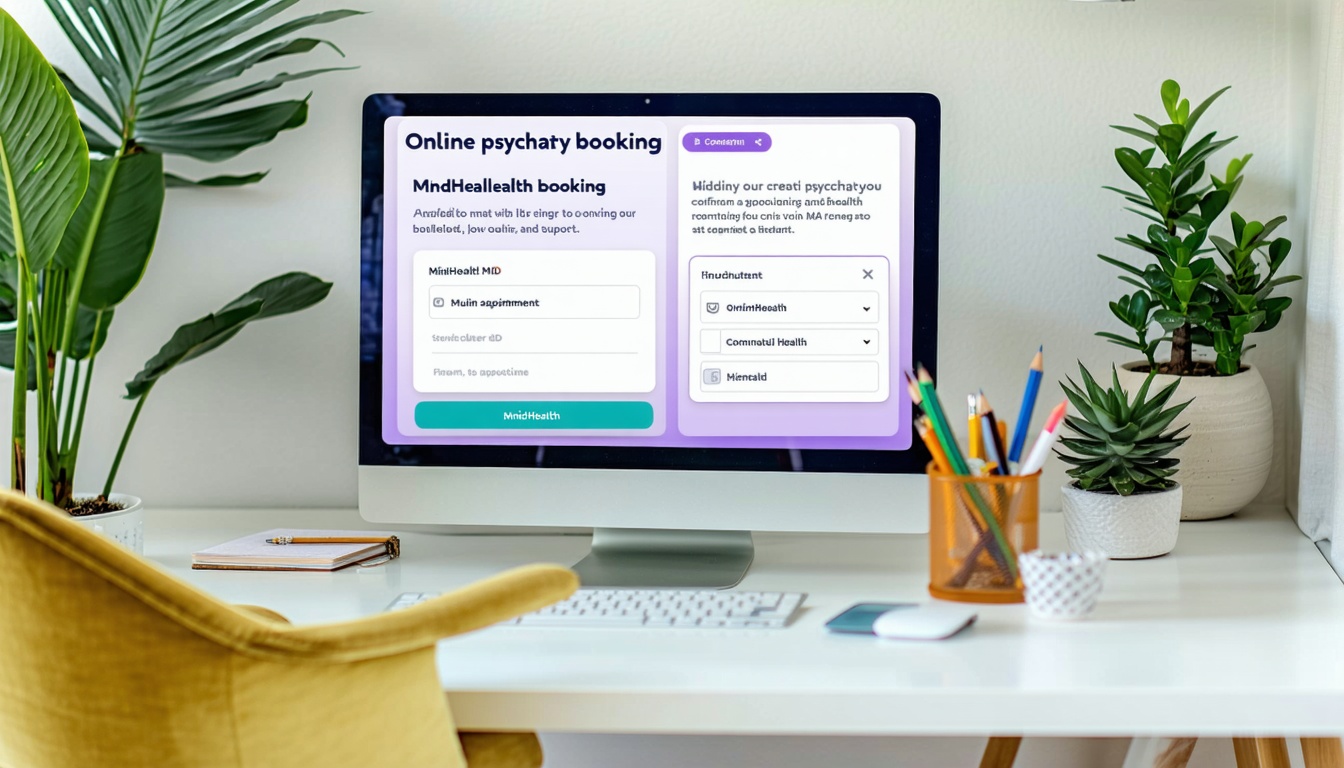Natural light and a peaceful environment can do wonders, but sometimes you need more immediate solutions for your emotional well-being. That’s where a mental health urgent appointment comes in. Scheduling urgent care for your mental health means you can speak with a professional quickly, ideally preventing small concerns from becoming larger, life-disrupting crises. At MindHealth MD, you’ll find comprehensive help in one place—telehealth psychiatry, Medication-Assisted Treatment (MAT), and TMS (Transcranial Magnetic Stimulation) all under a dedicated team devoted to your wellness. If you’ve been searching for a clear path to feeling balanced again, keep reading. You might be one phone call or online booking away from relief.
Recognize the need for quick help
When you’re struggling with anxiety, mood swings, or addiction, waiting weeks for an appointment can feel overwhelming. In the United States, the median wait time for a mental health provider is around 67 days [1]. That wait is heartbreaking when every new night can bring more stress, emotional pain, or even dangerous thoughts.
An urgent approach solves part of this problem. Instead of adding your name to a long queue, you can have a chance to see or speak with a qualified mental health provider promptly. This is critical if you or a loved one is experiencing symptoms such as severe depression, panic attacks, suicidal ideation, or the urge to self-harm. The idea is to address what’s pressing now, so you can stabilize and plan a path forward.
Why it matters
- It prevents emotional decline, allowing you to access help before symptoms worsen.
- It keeps you out of crowded emergency departments, where waits can be long.
- It connects you quickly with specialists who can offer resources, such as referrals or immediate interventions.
For individuals in crisis, immediate care can literally save a life. If you or someone you know experiences a life-threatening emergency—especially thoughts of harming yourself or others—call 911 right away or go to the nearest emergency room. If you’re in emotional distress or suicidal, call or text 988 to connect with the 988 Suicide & Crisis Lifeline [2].
Consider the rise of urgent mental health clinics
Across the United States, urgent mental health clinics are on the rise. In fact, around 30 of these clinics opened in 2019–2020 to address growing needs during the pandemic [1]. People need help—fast. The stressors of everyday life, combined with personal challenges like depression, anxiety, or addiction, have underscored why a swift response is essential.
Moreover, nearly 6 million adults visited the emergency department in 2021 for mental health care, which is up from 5 million in 2017 [1]. Unfortunately, a busy ED might not always provide the calm, focused care a mental health patient needs. Urgent clinics, including telehealth solutions, can offer a quieter environment with specialized attention.
How MindHealth MD fits in
MindHealth MD combines those same urgent-care principles with specialized services tailored to your lifestyle. Instead of sitting in a stuffy waiting room, you can:
- Consult via telehealth, directly from home in a distraction-free setting.
- Access multiple treatment modalities, from therapy to medication management to TMS.
- Book flexible appointments that match your schedule and needs.
This approach ensures you won’t have to juggle multiple providers in different clinics. If you’re seeking a mental health urgent appointment, you can choose MindHealth MD for fast, comprehensive support.
Explore telehealth psychiatry services
Telehealth psychiatry takes the concept of urgent mental health appointments to another level. Rather than traveling a long distance or waiting in a crowded reception area, you can connect privately through video or phone from wherever you feel comfortable. This method is especially helpful if you have mobility challenges or if you’re simply too anxious to leave the house.
Benefits of virtual care
- No commute: Save the time and stress of transportation.
- Privacy: Avoid the possibility of running into someone you know in the waiting room.
- Comfort: Reach out from a familiar environment that promotes calm.
- Easy scheduling: Thanks to fewer logistical hurdles, providers can see more patients, which can reduce wait times.
Even if you have a complex condition, a virtual psychiatry session might be the right fit. At MindHealth MD, licensed professionals can evaluate your history, prescribe medication when needed, and recommend additional therapies—just as they might in a traditional office. That efficiency helps ensure urgent concerns aren’t left to worsen.
When urgent telehealth is ideal
- Worsening symptoms that need immediate evaluation or medication adjustments.
- Post-discharge check-ins from a hospital stay or psychiatric unit, when frequent follow-up is essential.
- Handling issues like panic attacks or acute anxiety, especially if you can’t physically get to a clinic.
If you want to book your first telehealth visit and streamline your care, consider an immediate psychiatry appointment as a great starting point. You’ll typically begin with an introduction, a detailed symptom review, and a discussion of treatment goals.
Discover the role of MAT
Medication-Assisted Treatment (MAT) is about more than just prescribing medication—it’s a comprehensive approach that pairs behavioral therapy with proven pharmaceuticals (like methadone, buprenorphine, or naltrexone). This combination has been especially successful in treating opioid addiction and alcohol dependency.
Who benefits from MAT
- Adults battling opioid addiction who need a structured, evidence-based approach.
- Individuals with alcohol dependence who want to reduce cravings and manage withdrawal.
- People concerned about relapse who understand that medication plus therapy can increase success rates.
MAT can sometimes be provided quickly when you choose a specialized facility. If you or a loved one is ready to explore your options, you can look into our medication assisted treatment. For those specifically seeking opioid recovery, our mat for opioid addiction page outlines a tailored approach. Similarly, if alcohol is the concern, mat for alcohol dependency might be the right fit.
How MAT helps addiction recovery
- Stabilizes immediate withdrawal symptoms or cravings.
- Reinforces therapy through improved mental focus and emotional stability.
- Lowers the risk of overdose by diminishing cravings and blocking certain substance effects.
This specialized service cuts down on the potential for dangerous ED visits and extended hospital stays. Instead, you’re given a controlled framework to address addiction head-on as you heal.
Understand TMS therapy for depression
Severe or treatment-resistant depression can significantly upend your life, especially if you’ve tried multiple antidepressants without relief. Transcranial Magnetic Stimulation (TMS) directly targets the mood-regulating regions of your brain with magnetic pulses. This noninvasive therapy may boost neurotransmitter activity, helping you find relief.
Why TMS stands out
- Noninvasive: No anesthesia, no major systemic side effects like those associated with some medications.
- Outpatient-friendly: Each session typically lasts under an hour, and you can resume normal activities afterward.
- High success rate: Many individuals experience notable improvement in mood over weeks of treatment.
At MindHealth MD, tms therapy for depression integrates seamlessly with other treatment plans. If you’re curious about whether TMS could benefit you, consider talking to one of our transcranial magnetic stimulation providers. You’ll learn about typical session schedules, expected outcomes, and how TMS can fit into a comprehensive therapy plan, often as a part of a mental health urgent appointment if your situation requires quick intervention.
TMS appointment process
- Initial evaluation: We discuss your depressive symptoms, prior treatments, and overall goals.
- Mapping: Precisely identify the brain region to target, possibly using tools like an eeg brain mapping test.
- Sessions: You’ll typically attend sessions 5 days a week for several weeks, though schedules can vary.
- Follow-ups: We monitor how you respond, assess any side effects, and adjust as needed.
Because TMS can be done at a specialized clinic or specialized outpatient setting, it remains an excellent option for individuals seeking help but not necessarily requiring hospitalization.
Learn how MindHealth MD streamlines care
Sometimes, people think urgent mental health appointments focus only on immediate crises. But at MindHealth MD, the aim is to create a continuum of care. We believe that once you’ve overcome a crisis, you should maintain a plan that helps prevent relapses or the need for further urgent interventions.
A comprehensive approach
- In-network: We accept many insurance plans, making in network psychiatry care more accessible.
- Medication management: Our psychiatric medication management service ensures prescriptions are carefully monitored.
- Versatile treatment options: From talk therapy to specialized programs like co occurring disorders treatment.
- Quick booking: Check out our 48 hour psychiatry booking if you need an appointment soon.
If you’re dealing with complex issues like substance use and mental health disorders together, a dual diagnosis psychiatric program might be essential. MindHealth MD coordinates all the moving parts, ensuring nothing slips through the cracks.
Why act promptly
Each delay in receiving care can heighten stress, making existing symptoms harder to manage. Rather than letting months pass without answers, you could be taking strategic steps toward improvement. Often, even a single short term psychiatry session provides clarity or peace of mind that living with untreated mental health issues can’t.
Plan your mental health urgent appointment
Getting started is simpler than you might think. First, decide whether telehealth or an in-person consultation is more comfortable. Both paths include a thorough intake process: you’ll fill out basic medical forms, note your symptoms, and share any prior diagnoses. Depending on your immediate needs, a care provider may suggest next steps like therapy, medication, or specialized interventions.
Overcoming scheduling hurdles
- Telepsychiatry: You can often find same-day or next-day slots for a same day psychiatric evaluation.
- Online booking: Use our online psychiatry booking to choose a time that works for you.
- Self-pay options: If you’re concerned about insurance or prefer not to use it, a self pay psychiatry session is available.
If you’re uncertain which route to take, you can reach out by phone to discuss your specific concerns. Our team is happy to navigate insurance details, estimate costs, and review your service options. Whether you want an adult psychiatry intake appointment or a child psychiatry immediate access option, MindHealth MD can help find a suitable provider quickly so you can focus on getting better.
Know your rights for timely care
You don’t have to wait indefinitely for mental health treatment. Certain states, like California, require health plans to provide prompt access to care within specific time frames [3]. This could be a game changer for you if you’ve been feeling helpless about long waitlists.
Workplace leave
If you’re juggling work responsibilities, remember that the Family and Medical Leave Act (FMLA) might offer job-protected time off for serious mental health conditions [4]. This includes caring for a family member or seeking essential services for yourself. Having this knowledge may empower you to get critical help without fearing job loss or financial stress.
Use additional resources
Aside from urgent care clinics, there are many other resources you can tap into for mental health support:
- Primary care provider: Many people start by talking to their regular doctor, who can offer referrals.
- Community clinics: Some clinics offer free or low-cost counseling if you’re uninsured [5].
- Charity organizations: Nonprofits sometimes provide hotlines, support groups, and low-cost therapy sessions.
- Peer support: Online communities or in-person groups validate your experience by connecting you with people who’ve been there.
Why synergy matters
These resources, when combined with urgent appointments at MindHealth MD, can provide layers of support. That can be especially beneficial if you have multiple treatment goals. For example, you might require short-term medication management for depression and a robust therapy schedule for trauma. By blending urgent appointments with peer groups or in-person community services, you widen your supportive network.
Prepare for your first appointment
It’s vital to jot down questions or concerns you have for your mental health provider. You’ll want clarity on treatment plans, costs, follow-up sessions, and how to handle emergencies. Preparing a list can help you gauge if your provider is a good fit and, if not, know that it’s perfectly normal to seek a second opinion. Open communication usually yields the best healthcare outcomes—and mental health is no exception.
What to discuss in your appointment
- Current mental health symptoms: When they started, how they make you feel, any triggers you’ve noticed.
- Medical history: Past treatments, medications, or hospitalizations.
- Lifestyle factors: Sleep patterns, exercise habits, dietary concerns, or substance use.
- Therapy preferences: Some people favor talk therapy, others might be open to TMS, and some need medication assisted treatment.
- Insurance concerns: Confirm coverage details or ask about insurance accepted psychiatry.
This proactive approach ensures that your care team has everything they need to tailor a plan specifically for you. And remember, if you need more advanced testing, an eeg diagnostic for mental health might be recommended to refine your treatment approach.
Maintain progress after urgent care
Once your urgent symptoms subside, you’ll likely need ongoing support. This doesn’t mean you’ll be in treatment forever, but developing a maintenance strategy helps you stay mentally fit. You might follow up monthly, schedule check-ins every few weeks, or transition to group therapy. If medication is part of your plan, consistent follow-ups ensure you’re taking the right dose and that you’re aware of potential side effects.
Building a long-term plan
- Regular appointments: Adhere to scheduled visits, whether biweekly or monthly.
- Symptom tracking: Keep a journal of moods or triggers.
- Support system: Lean on friends, family, and possibly a support group.
- Adjusting as needed: Mental health treatment often changes with time. If you relapse or face new stressors, you might need additional care, such as substance use psychiatry service.
Sticking to a maintenance routine can significantly boost your stability and overall quality of life. If you ever feel yourself sliding backward, remember that you don’t have to wait for a full-blown crisis. Visit or call MindHealth MD to consider a post discharge psychiatry care plan or request an urgent appointment to nip problems in the bud.
Address frequently asked questions
1. When should I schedule a mental health urgent appointment instead of a regular one?
You’ll want an urgent appointment when you’re experiencing acute distress that can’t wait 67 days or more for a traditional slot. Typical red flags include suicidal thoughts, uncontrollable anxiety or panic, rapid mood changes, or urges to self-harm. If it feels like things are escalating quickly, or you’re unable to function in day-to-day tasks, it’s time to consider immediate intervention.
2. Can I use insurance for urgent mental health care at MindHealth MD?
Yes. Many of our services are covered under in network psychiatry care. You can also look into insurance accepted psychiatry to confirm whether your specific plan covers immediate or telehealth services. If for any reason your coverage doesn’t apply, we can discuss self pay psychiatry session options.
3. Does MindHealth MD offer appointments for children and teens?
Absolutely. We understand that mental health issues in younger individuals can be urgent too. If you have a child or teen who’s struggling, you can arrange a child psychiatry immediate access appointment. This can help families address concerns swiftly, ensuring a supportive environment at home and potentially preventing academic or social troubles from escalating.
4. How does TMS factor into an urgent visit?
TMS might not be the immediate first-line treatment if you’re in extreme crisis, but it’s worth discussing if your depression has been long-standing or resistant to medication. After initial stabilization, you can explore whether schedule tms treatment is right for you. The evaluation process is quick, and you might find that TMS alleviates symptoms in a way that complements your other therapies.
5. Is MAT only for opioid addiction?
No. While MAT receives a lot of attention for opioid use disorder, it can also address alcohol dependency. It’s most beneficial when paired with therapy and medical guidance, offering a well-rounded approach to addiction recovery. If you’re exploring how to start a medically guided program, we invite you to see how to start mat program for more specific steps.
Take the next step today
If you’re still on the fence, remember that taking action can feel empowering, especially during times when you might otherwise feel helpless. Scheduling a mental health urgent appointment with MindHealth MD places you on a path to relief, clarity, and sustainable change. Our ultimate goal is to ensure you or your loved one receives respectful, timely care that meets your unique challenges—from anxiety or depression to complex co-occurring disorders.
Feeling stressed, low, or desperate doesn’t have to be your “new normal.” The moment you decide to prioritize your mental well-being, you’re already taking one of the biggest, bravest steps toward feeling better.
Remember, if you ever face a life-threatening emergency, call 911 or go to the nearest ER immediately. If you’re contemplating suicide or severe self-harm, dial or text 988 to connect with a trained crisis counselor [2]. For everything else—from mild anxiety to exploring advanced therapies—let MindHealth MD offer the prompt, specialized help you deserve. You can start with an online psychiatry booking or call us to discuss your options in real-time.
Your mental health matters. Let’s make sure you get the prompt support and ongoing care you need. You have options, and you don’t have to face any crisis alone. No matter what you’re going through, there’s a route to feeling better—starting with that first urgent appointment, taken one step at a time.








